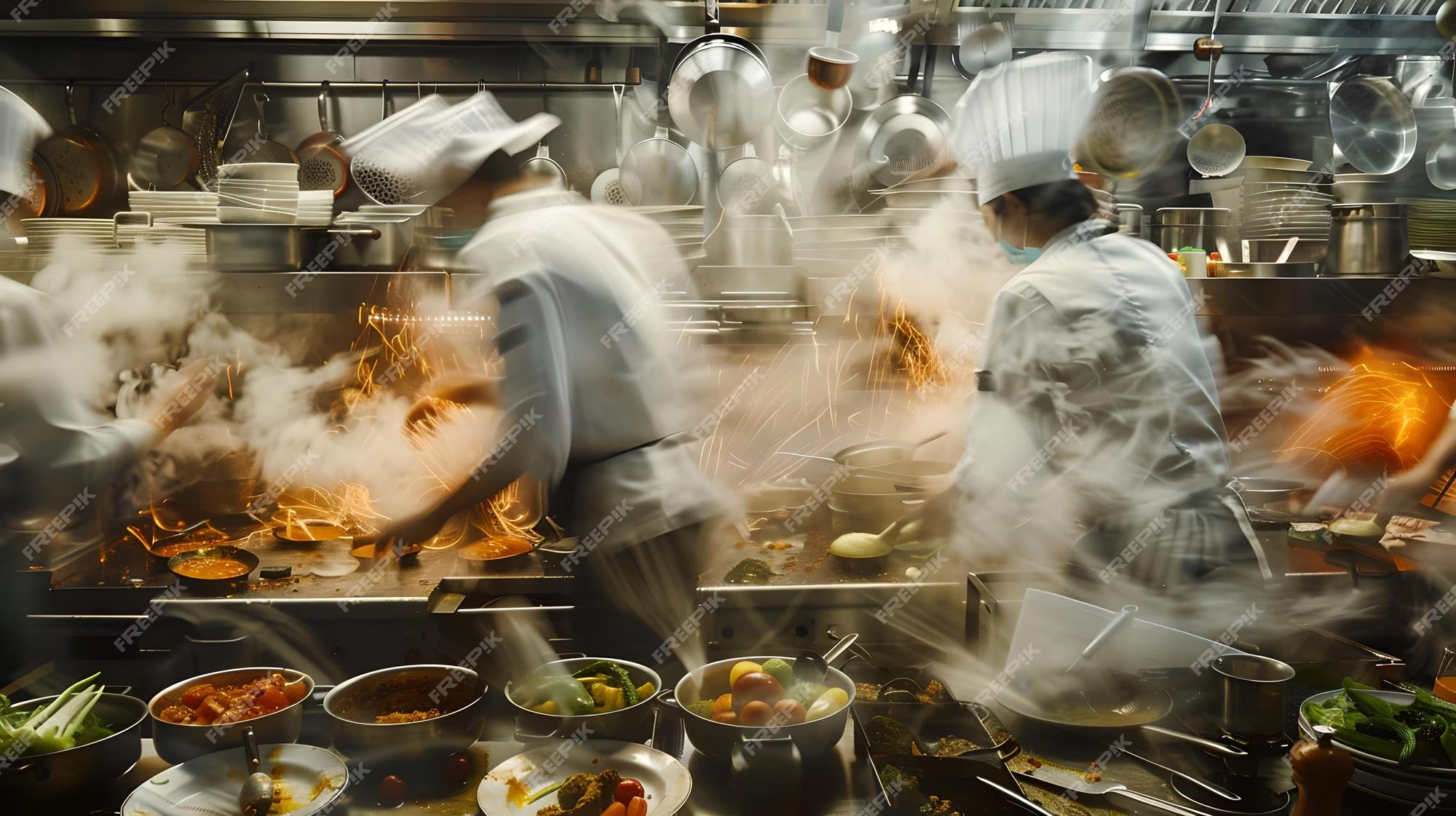From Sauté Pans to Spreadsheets: The Journey from Chef to Club Operations
From Sauté Pans to Spreadsheets: The Journey from Chef to Club Operations
The heat of the kitchen can be intense, but nothing prepared me for a weekend combo of Men's Open and Mother's Day during COVID. Picture this: Thursday night, the kitchen is buzzing, men’s night dinner service is happening, while also prepping for the upcoming weekend's onslaught. Friday morning arrived, and most of the staff had tested positive. Suddenly, it was just three of us facing down the barrel of feeding 200 people per day for three straight days. The pressure was immense, and the hours were brutal, but we pulled it off. It was in that moment, amidst the chaos and the exhaustion, that I realized I wanted more than just surviving the kitchen.
I wanted to be part of the bigger picture, to contribute to our club's success in a different way. I was starting to lose the passion and drive for the daily kitchen grind, and the burnout was setting in. But something else was sparking: I found myself increasingly enjoying interactions with other departments and members. The challenge of collaborating on new ideas and seeing the club operate as a whole was incredibly appealing. That's when I knew it was time for a change, a move from the controlled chaos of the kitchen to the dynamic world of club management. I've always loved the unique atmosphere of a private country club, and I realized I could stay within that environment while seeking out new challenges and setting new goals. It was the perfect opportunity to learn new skills and translate my existing ones into a completely different scenario.
The truth is, being a chef provides a surprising number of transferable skills. Time management, for example, is absolutely crucial in the kitchen. Juggling multiple tasks, coordinating staff, and ensuring everything is on time requires meticulous planning and execution. That skill translated seamlessly into managing the logistics of club events, like tournaments. Suddenly, I wasn't just managing food; I was managing timelines, staff from different departments, and member expectations, all with the same sense of urgency. Similarly, the attention to detail that chefs cultivate is invaluable. Every ingredient, every garnish, and every presentation matters. Bringing that same level of scrutiny to other aspects of club operations—from event setups to member communications—provided a fresh perspective and an extra set of eyes that benefited both me and the team.
More than that, working in the kitchen gave me an invaluable 'insider's view' of the club. You're at the heart of the action, privy to the daily rhythms and the nuances of member preferences. I heard their feedback, understood their routines, and learned what truly mattered to them. This knowledge, gained from the ground up, provided a unique advantage when I transitioned to a more member-facing role. In a country club kitchen, you gain a deep understanding of the club's culture and the expectations of its members, something an outsider would have to learn over time.
I also made a point of proactively learning about other aspects of the club's operations. I wasn't content to stay confined to the kitchen. For example, I became heavily involved in the planning and execution of golf tournaments and related events. This meant working closely with the pro shop, the front of house, and even external vendors. I attended planning meetings, coordinated logistics, and learned firsthand the challenges and triumphs of each department. This experience gave me a holistic view of the club and a deep appreciation for the collaborative effort required to create a seamless member experience.
So, how did I make the leap? It wasn't about sending out resumes or applying for jobs elsewhere. It was about having open and honest conversations within the club itself. I sat down with our General Manager and expressed my desire for a new challenge and a different role. The fact that I had spent the previous year or two as both Executive Chef and Director of Food and Beverage gave me a unique advantage. I was already accustomed to interacting with members, collaborating with other departments, and understanding the broader scope of the club's operations. I emphasized my strong work ethic and my drive to learn and grow. Ultimately, the GM and I concluded that the Assistant GM position was a great fit, a natural progression that would allow me to leverage my existing strengths while developing new ones.
Of course, the transition wasn't without its challenges. The steepest learning curve, surprisingly, wasn't about learning new skills; it was about adjusting my mindset. The kitchen is a fast-paced, high-pressure environment where quick decisions and rapid responses are essential. However, the world of club management requires a more measured and thoughtful approach. The biggest challenge for me was learning to slow down, to think before I spoke, and to carefully consider the implications of my words and actions. It's a different rhythm, a different pace, and it took time to adapt. Learning to communicate effectively with members, managers, and staff calmly and deliberately was a crucial part of my development.
I wouldn't have made it through this transition without the support and guidance of some incredible mentors. Kyle Stewart, the General Manager at the time I stepped into the Assistant GM role, was instrumental in the beginning of my journey. He provided the initial encouragement and support I needed to take that leap of faith. Hendrick van der Geld CCM, our current General Manager, has been a vital mentor, driving me forward in my current role. Their belief in my potential and their willingness to share their knowledge and experience have been invaluable.
Now, as Assistant GM, my days are a blend of the daily management of the club and operational oversight. I start by connecting with department heads and staff, ensuring everyone is aligned and on track for the day and the upcoming events. This involves anticipating potential challenges, coordinating resources, and fostering a collaborative environment. I also handle the club's communications and marketing, which requires a keen understanding of our members' needs and preferences. From crafting engaging newsletters to managing our online presence, I'm constantly working to enhance the club's image and strengthen our community.
As I grow in the position, I'm particularly proud of a couple of key achievements in my new role. The successful implementation of our WSIB Excellence Program has been a significant step forward in ensuring a safe and efficient work environment for our staff. Additionally, the launch of our new club magazine has been a tremendous success. It was a challenging but incredibly rewarding project, and the positive feedback from our members has been truly gratifying. It was a great learning experience, and it's wonderful to see how much the magazine has resonated with our community.
If you're considering a similar career change, especially within your current workplace, my advice is simple: push yourself to want more. Challenge yourself to grow and learn. And most importantly, communicate your aspirations to your managers. Be transparent about your desire to expand your role and contribute to the club in new ways. I've found that most managers are eager to support and develop staff members who demonstrate a genuine desire to grow with the organization. They recognize the value of internal talent and are willing to invest in their development.
Looking ahead, my ultimate goal is to become a General Manager of a prestigious country club. I'm committed to continuing to learn and grow, to embrace new challenges, and to contribute to the success of this wonderful industry. I hope this story inspires others to pursue their passions and seek out opportunities for growth, wherever they may be.
Nick D’Ovidio is a seasoned professional with over 20 years of experience in the private club sector, starting his culinary journey in 2004 as a cook at The Toronto Cricket Skating and Curling Club. He honed his skills under the mentorship of Executive Chef William Tucker at Toronto Cricket and The Old Mill Inn. In 2015, Nick was promoted to Executive Chef at The Club at North Halton and later held the same prestigious position at Oakdale Golf and Country Club. In 2020, Nick returned to North Halton, where he transitioned into his current role as Assistant General Manager.











